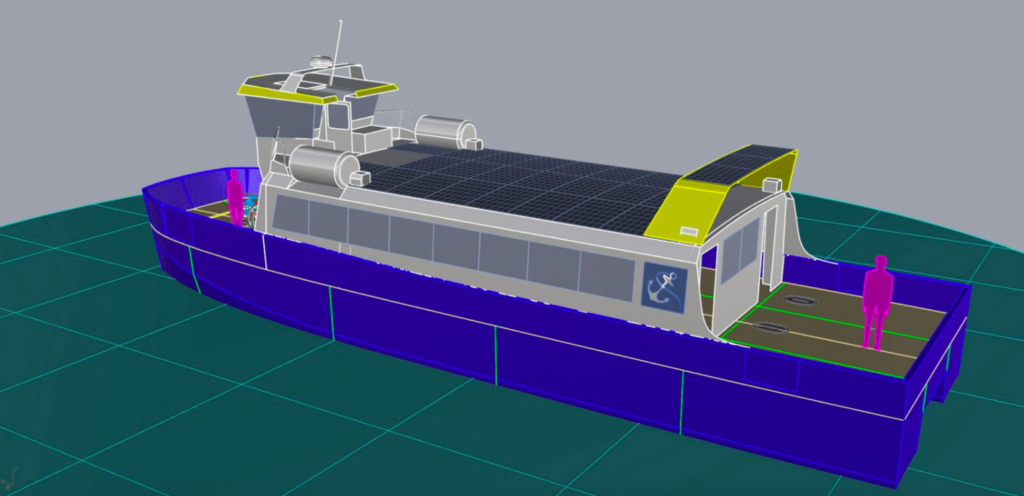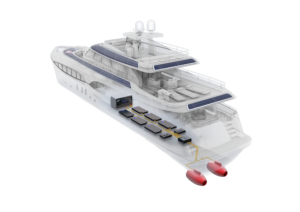Voyager Boatyard and Plymouth Boat Trips win funding to create e-Ferry

Voyager Boatyard has successfully bid for funding from Innovate UK to design and build an e-Ferry. The fully electric boat will become the flagship vessel on Plymouth Boat Trips’ Cremyll Ferry commuter route, between Plymouth and South East Cornwall.
Following the company’s recent conversion of a small, diesel work boat to e-Voyager, a fully electric, 12 passenger design – this larger, 150 capacity, vessel will operate for up to 14 hours a day on a single charge.
The funding from Innovate UK comes as part of UK Research and Innovation, which is investing up to £191m to fund single and collaborative research and development projects via the Sustainable Innovation Fund over the next two years. The aim of these competitions is to help all sectors of the UK rebuild after the effects of Covid-19.
The team at Voyager Boatyard has now focused on the development of zero-carbon, fully electric propulsion systems for the domestic passenger vessel and under 24m commercial workboat sector.
“We have used the down time [Covid-19] to apply for funding, that will enable us to further develop our zero-carbon agenda,” says project leader Andy Hurley. “Following the success of e-Voyager, we’re delighted to move to the next phase and, once again, lead the way towards a sustainable marine future with e-Ferry.”
Voyager Marine and Plymouth Boat Trips will be working with Solis Marine Engineering to create a clean hydrodynamically efficient hull form that maximises use of the stored energy available.
The e-Ferry will be designed and built to effectively operate in a congested maritime environment, with strong tidal conditions, rough seas, and challenging berthing locations. It will also include additional zero-carbon solutions such as photovoltaic panels or similar renewable energy sources.
“Projects which advance the zero-carbon agenda and marine renewables sector are central to our work,” says Solis Marine Engineering’s MD, Simon Hindley. “For this project, we will be working in partnership with Falmouth based naval architects Pelagic Design to deliver an optimised low resistance design which helps to advance the use of clean energy in the South West.”










